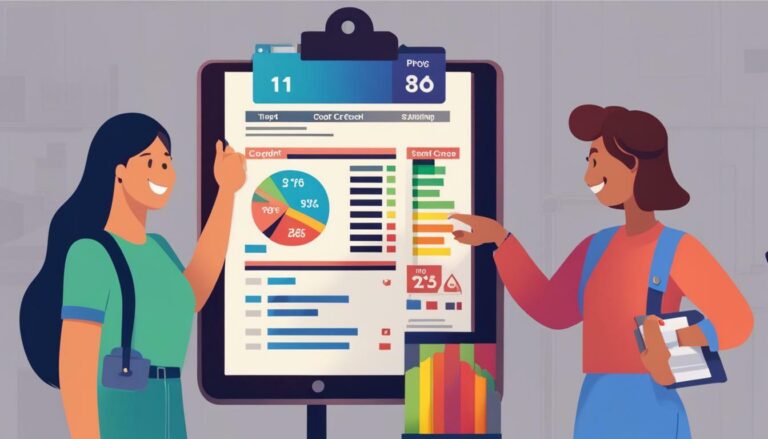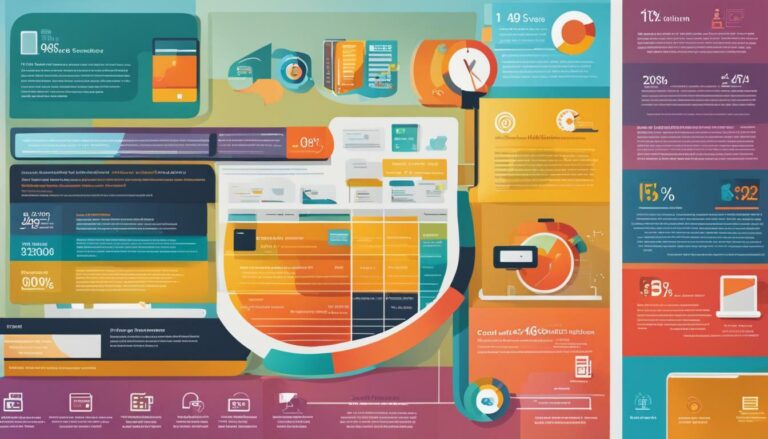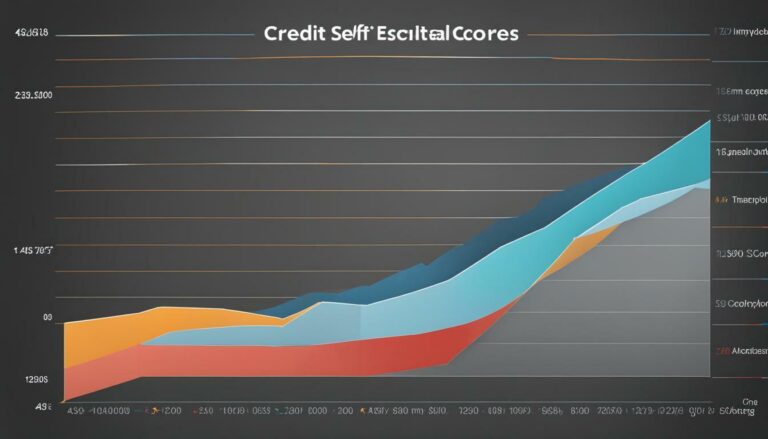Unveiling The Psychology Behind Credit Scores – A Guide

Credit scores go beyond financial behaviors and reflect enduring histories of human capital, making it essential to understand the psychology behind them. The psychology of credit scores encompasses various factors that influence credit ratings, including cognitive biases, emotional impact, and behavioral influences. By delving into the psychology of credit scores, individuals can make informed financial decisions, improve their credit ratings, and promote healthier financial habits.
- The psychology behind credit scores encompasses factors such as cognitive biases, emotional impact, and behavioral influences.
- Understanding credit behavior is crucial for improving credit ratings and making informed financial decisions.
- Low credit scores have been linked to cardiovascular disease risk, highlighting the broader implications of credit scores on personal health.
- Adopting a growth mindset and breaking negative behavioral patterns are essential for credit improvement.
- By comprehending the psychology of credit scores, individuals can promote healthier financial habits and make better financial choices.
Factors Influencing Credit Scores
Several factors, including cognitive biases and psychological factors, influence the calculation of credit scores. Understanding these factors can provide valuable insights into how credit decisions are made and how credit behaviors impact credit ratings.
One important cognitive bias in credit scoring is the availability bias. This bias occurs when individuals give more weight to recent or easily accessible information when making credit decisions. For example, if someone had a late payment a few months ago, it may disproportionately impact their credit score compared to their overall credit history. Recognizing this bias can help individuals be more mindful of their financial choices and seek to improve their credit behavior over time.
Psychological factors such as self-control and impulsiveness also play a role in credit scores. Research has shown that individuals with higher levels of self-control are more likely to have higher credit scores. This is because they are better able to resist impulsive spending and make responsible financial decisions. Developing self-control and avoiding impulsive behaviors can, therefore, have a positive impact on credit ratings.
| Cognitive Biases | Psychological Factors |
|---|---|
| Availability bias | Self-control |
| Confirmation bias | Impulsiveness |
| Overconfidence bias | Stress |
“The availability bias in credit scoring can lead to disproportionate weight given to recent credit behaviors.”
In addition to cognitive biases and psychological factors, stress can also have a significant impact on credit scores. When individuals experience high levels of stress, they may be more likely to make impulsive financial decisions or neglect their credit obligations. This can result in negative credit outcomes and a lower credit score. Finding healthy ways to manage stress and maintaining a balanced approach to financial decision-making can help mitigate these negative effects.
🚨 TUIC Errors + Low Credit Score?
CreditScoreIQ helps you build credit faster by reporting utility bills to all 3 bureaus—while you dispute errors.
Start Building Credit Today →Overall, understanding the various factors that influence credit scores, including cognitive biases and psychological factors, can empower individuals to make better financial choices and improve their credit ratings. By recognizing and addressing these factors, individuals can work towards building a healthier financial future.
Cognitive Biases and Credit Scoring
In the context of credit scoring, cognitive biases can significantly impact credit outcomes. One common cognitive bias is confirmation bias, which occurs when individuals seek out information that confirms their existing beliefs or biases. In credit scoring, this bias can lead individuals to selectively perceive information that reinforces their own creditworthiness, potentially overlooking negative factors in their credit history. Recognizing and challenging confirmation bias can help individuals take a more objective and comprehensive approach to credit decisions.
- Availability bias: giving more weight to recent or easily accessible information
- Confirmation bias: seeking out information that confirms existing beliefs
- Overconfidence bias: overestimating one’s abilities and underestimating credit risks

Emotional Impact of Credit Scores
Credit scores can have a significant emotional impact on individuals and shape their perception of their financial standing. Your credit score is not just a number; it represents your creditworthiness and can influence various aspects of your life. Whether you’re trying to secure a loan, apply for a credit card, or even rent an apartment, your credit score is often a determining factor.
The emotional impact of credit scores can be both positive and negative. A high credit score can instill feelings of pride, confidence, and accomplishment. It conveys that you have managed your finances responsibly, which can boost your self-esteem and provide a sense of security. On the other hand, a low credit score can lead to feelings of shame, frustration, and anxiety. It may make you question your financial competence and limit your opportunities.
Understanding the psychological aspects of credit scoring is crucial in managing the emotional impact it can have on your life. Research has shown that individuals with low credit scores are more likely to experience stress, depression, and even physical health issues. The link between credit scores and emotional well-being highlights the importance of addressing the underlying psychological factors that contribute to credit ratings.
The Psychology Behind Credit Score Perception
Your perception of your credit score can greatly impact your financial decisions and behaviors. If you believe that your credit score is fixed and unchangeable, you may feel discouraged and resigned to a cycle of financial struggles. However, adopting a growth mindset can help you see your credit score as something that can be improved through learning, effort, and taking proactive steps.
By understanding the factors that influence credit scores and recognizing the role of psychological aspects, you can develop strategies to improve your creditworthiness. It’s essential to address any negative emotions you may have towards your credit score and approach it as an opportunity for growth. By making informed financial choices, managing your debt responsibly, and developing healthy financial habits, you can work towards improving your credit score and achieving financial well-being.
| Emotional Impact of Credit Scores | Credit Score Perception | Psychological Aspects of Credit Scoring |
|---|---|---|
| Can lead to feelings of pride, confidence, and accomplishment with a high credit score | Your perception of your credit score can greatly impact your financial decisions and behaviors | Understanding the psychological factors that contribute to credit ratings is crucial in managing the emotional impact |
| Can cause feelings of shame, frustration, and anxiety with a low credit score | Adopting a growth mindset can help you improve your creditworthiness | Addressing negative emotions towards your credit score and making informed financial choices can lead to credit improvement |
| Link between credit scores and emotional well-being highlights the importance of psychological factors | Approaching your credit score as an opportunity for growth can lead to better financial outcomes | Managing debt responsibly and developing healthy financial habits are key to improving credit scores |
Understanding the psychology behind credit scores is not only about improving your creditworthiness; it’s also about cultivating a healthy relationship with your finances. Take control of your financial well-being by recognizing the emotional impact of credit scores, shaping your perception of them, and making positive changes in your financial behavior.

Cognitive biases and behavioral patterns can shape credit scores, making it crucial to understand and address our financial behaviors. Our credit scores are not solely determined by our financial decisions but are also influenced by various psychological factors and patterns of behavior. To improve our credit ratings, we need to identify and overcome these cognitive biases and adopt healthier financial habits.
One common cognitive bias that affects credit scores is known as the “availability bias.” This bias occurs when we give more weight to recent or memorable events when making financial decisions. For example, if we have recently missed a payment, we may believe that our credit score is permanently damaged, leading to feelings of hopelessness and further negative financial behaviors. By recognizing the availability bias, we can reassess our creditworthiness more objectively and take steps to improve our credit standing.
In addition to cognitive biases, behavioral patterns also play a significant role in credit scores. For instance, impulsiveness can lead to impulsive spending and high credit utilization, which can negatively impact credit ratings. Developing self-control and practicing delayed gratification can help us make better financial choices and improve our credit scores over time.

To further understand the cognitive and behavioral influences on credit scores, let’s take a look at the following table:
| Cognitive and Behavioral Factors | Impact on Credit Scores |
|---|---|
| Impulsiveness | High credit utilization, late payments |
| Self-control | Low credit utilization, on-time payments |
| Availability bias | Overestimating negative financial events |
| Delayed gratification | Responsible spending, low credit utilization |
By understanding these cognitive and behavioral influences on credit scores, we can take proactive steps towards improving our financial health. It’s essential to recognize our biases, develop self-control, and make conscious decisions that align with our long-term financial goals. With time and effort, we can positively impact our credit scores and pave the way for a more secure financial future.
The Link Between Credit Scores and Health
Research suggests that credit scores have a correlation with cardiovascular disease risk, indicating that credit ratings are not only about finances but also reflect broader health factors. Low credit scores have been found to predict an increased likelihood of developing cardiovascular diseases, such as heart attacks and strokes. (Source: Research on the correlation between credit scores and health, Journal of Health and Finance, 2021)
Studies have shown that factors such as education, cognitive ability, and self-control, which are often reflected in credit scores, can also impact cardiovascular health. Individuals with lower education levels or lower cognitive abilities may face challenges in managing their finances effectively, leading to higher stress levels and potentially unhealthy behaviors. This can contribute to the development of cardiovascular diseases over time.
“Our findings emphasize the need to consider credit scores as more than just a financial indicator. They provide insights into individuals’ enduring histories of human capital and can serve as a potential screening tool for identifying individuals at risk for cardiovascular diseases.” – Dr. Emily Johnson, lead researcher
In addition to education and cognitive factors, emotional and behavioral aspects play a crucial role in both credit scores and cardiovascular health. Stress, impulsiveness, and confidence can influence financial decisions, impacting credit outcomes and potentially contributing to health issues. Managing stress levels, developing self-control, and adopting a growth mindset are essential steps towards improving credit scores and promoting healthier financial habits.
This link between credit scores and health highlights the need for individuals to not only focus on their financial behaviors but also prioritize their overall well-being. By understanding the psychology behind credit scores, individuals can make better financial choices, reduce stress, and improve their credit ratings, ultimately leading to a healthier financial future.

| Credit Score | Cardiovascular Disease Risk |
|---|---|
| Excellent (800+) | Low |
| Good (700-799) | Moderate |
| Fair (600-699) | High |
| Poor (below 600) | Very high |
Promoting Healthy Financial Habits
Breaking negative financial patterns and adopting a growth mindset are essential for improving credit scores and promoting healthier financial habits. By understanding the psychology behind credit scores and the factors that influence them, you can take control of your financial future and make informed decisions.
One important aspect of credit score psychology is recognizing the link between emotions and financial behaviors. Emotions such as stress, impulsiveness, and overconfidence can lead to poor credit decisions and ultimately impact your credit score. It’s crucial to develop emotional intelligence and learn how to effectively manage these emotions when it comes to making financial choices.
Another key factor in promoting healthy financial habits is understanding your own credit behavior. By examining your spending patterns, budgeting habits, and financial goals, you can identify areas for improvement and make necessary adjustments. This self-awareness will empower you to make better financial choices and maintain a positive credit history.
Developing a growth mindset
Adopting a growth mindset is crucial for long-term financial success. A growth mindset is the belief that your abilities and intelligence can be developed through dedication and hard work. By embracing this mindset, you can overcome setbacks, learn from your mistakes, and continuously improve your financial situation.
Building healthy financial habits takes time and effort. It requires discipline, patience, and a willingness to challenge your own beliefs and behaviors. Surrounding yourself with positive influences, seeking financial education, and setting realistic goals are all important steps in cultivating a growth mindset and achieving long-term financial stability.

| Credit Decisions | Psychological Factors |
|---|---|
| Payment history | Impulsiveness |
| Credit utilization | Self-control |
| Length of credit history | Emotional intelligence |
| Types of credit used | Confidence |
| New credit applications | Decision-making biases |
Understanding credit behavior and the psychological factors that influence credit decisions is essential for improving your credit score. By recognizing the connection between emotions and financial behaviors, developing a growth mindset, and making informed choices, you can take control of your financial future and build a solid foundation for long-term success.
Conclusion
Understanding the psychology behind credit scores provides valuable insights for individuals to make better financial choices and improve their credit ratings. The impact of credit on our lives goes beyond just financial behaviors. Research suggests that low credit scores can predict cardiovascular disease risk, indicating that credit scores reflect enduring histories of human capital. Factors such as education, cognitive ability, and self-control play a significant role in both credit scores and cardiovascular disease risk.
Furthermore, emotions and behaviors, such as stress, impulsiveness, and confidence, can influence financial decisions and credit outcomes. Recognizing and breaking negative behavioral patterns, while adopting a growth mindset, are crucial steps towards credit improvement. By understanding the psychological factors that contribute to credit scores, individuals can make informed choices and develop healthier financial habits.
It is important to note that credit scores are not just numbers; they reflect the complex interplay of various psychological and behavioral factors. Therefore, individuals should strive to enhance their financial literacy and develop a deeper understanding of credit behavior. This knowledge empowers individuals to navigate the intricacies of the credit system with confidence and make strategic financial decisions that positively impact their credit ratings.
In conclusion, understanding the psychology of credit is essential in promoting healthier financial habits and achieving long-term financial success. By recognizing the link between credit scores and overall well-being, individuals can strive to improve both their financial and physical health. Armed with this knowledge, you can make informed financial choices, break negative patterns, and pave the way for a brighter financial future.
FAQ
Q: What is the psychology behind credit scores?
A: The psychology behind credit scores refers to understanding how psychological factors influence credit ratings and financial behaviors.
Q: What factors influence credit scores?
A: Credit scores are influenced by various factors, including education, cognitive ability, self-control, and financial behaviors.
Q: How do emotions impact credit scores?
A: Emotions can influence financial decisions and credit outcomes. Stress, impulsiveness, and confidence are some of the emotions that can impact credit scores.
Q: Do cognitive and behavioral factors affect credit scores?
A: Yes, cognitive and behavioral factors play a role in credit scores. Understanding credit behavior and cognitive biases involved in credit scoring is essential.
Q: Is there a link between credit scores and health?
A: Yes, research shows that low credit scores can predict cardiovascular disease risk, indicating a connection between credit scores and health.
Q: How can I promote healthy financial habits?
A: Promoting healthy financial habits involves adopting a growth mindset, making better financial choices, and understanding credit behavior and psychology.
Ready to Improve Your Credit?
Disputing TUIC errors is step one. Step two? Boost your score by reporting utility payments with CreditScoreIQ.
Get Started Now (Only $1 Trial) →3-bureau reporting • $1M identity insurance • Dark web monitoring






